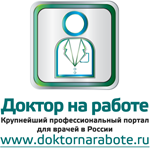Paul Zak

The Molecule of Good Morals
June 13, 2012 | 20:00
On June 13, the Digital October center hosted a lecture by Paul Zak — a scientist who unites mathematics, economics, and neurology in order to explain human behavior. He has coined the term “neuroeconomics” and founded and led the Center for Neuroeconomics Studies at Clairemont Graduate University.
On June 13, the Digital October center hosted a lecture by Paul Zak — a scientist who unites mathematics, economics, and neurology in order to explain human behavior. He has coined the term “neuroeconomics” and founded and led the Center for Neuroeconomics Studies at Clairemont Graduate University.
Zak maintains that the hormone oxytocin, which he calls the “moral molecule,” influences a person’s desire to behave in accord with the strictures of morality. In the opinion of this scientist, oxytocin is reponsible for trust, empathy, and other feelings that help us to construct a stable society.
He has described his views and the history of his research in the book “The Moral Molecule: The Source of Love and Prosperity.”
Zak describes the importance of hormonal regulation in the follow way: “Civilization depends on oxytocin. You cannot live in an environment of poorly known people until something says to you, ‘I can trust him, but not that other one.’” In addition, the scientist’s research aims at studying the mechanisms that guide the contemporary economy, at developing new principles for the business-negotiation process, and even at helping people who are suffering from neurological and mental illness.
During his lecture at Digital October, Paul Zak spoke in detail about oxytocin and its effects on the organism: how, specifically, this hormone influences activity, the ability to work, and a person’s decision-making process.
POST-LECTURE DISCUSSION PARTICIPANTS
-
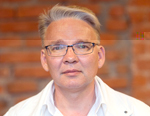
Vladimir Dobronravov
physician-neurophysiologist, KrioRus
-

Sergey Enikolopov
Head of Chair, Criminal Psychology MGPPU
-
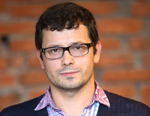
Oleg Klepikov
UCF investment company Senior partner
-
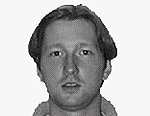
Vasily Klucharev
Researcher at the Center of Economic Psychology, University of Basel, Switzerland; expert of the Russian Training Network in NeuroBiotechnology (BioN)
-
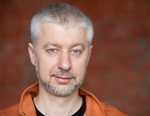
Dmitry Repin
CEO of Digital October
-
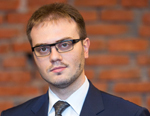
Vasily Fedorin
leading specialist of project analysis, "Biofond RVC"
































